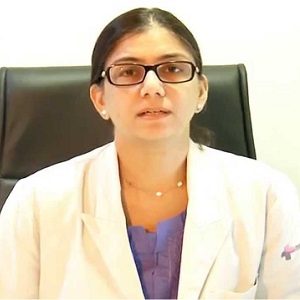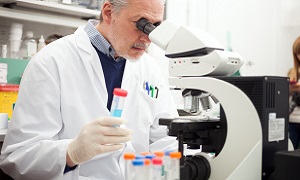Best Doctors in India for Genetic Testing
- Obstetrician & Gynaecologist, Gurugram, India
- Over 20 years’ experience
- Artemis Hospital, Gurgaon
Profile Highlights:
- Dr. Smita Vats is a dedicated gynecologist & obstetrician in Delhi/ NCR. She received extensive training in advanced gynecological endoscopy, laparoscopy, and hysteroscopy from renowned surgeons in India and abroad.
- Dr.Smita Vats is especially interested in infertility treatments, gynecologic endoscopic surgeries, high-risk pregnancy management, and adolescent and menopausal issues.
- Obstetrician & Gynaecologist, Gurugram, India
- Over 18 years’ experience
- Artemis Hospital, Gurgaon
Profile Highlights:
- Dr. Asha Sharma is one of the best Gynecologists & Obstetricians in Delhi/ NCR. She practices Laparoscopic Surgery (Obs & Gyn) to assist patients with their Gynaec problems.
- The doctor provides consultations and checkups for maternal care, PCOS/PCOD, egg donation, diseases in pregnancy, irregular or excessive bleeding, and other menstrual disorders in adolescent girls, etc.
- Obstetrician & Gynaecologist, Gurugram, India
- Over 35 years’ experience
- Artemis Hospital, Gurgaon
Profile Highlights:
- Dr. Nutan Agarwal is an eminent Obstetrician & Gynecologist.
- Dr. Nutan Agarwal is credited with pioneering various PCOS medications in India, such as Metformin and myoinositol.
- She has also developed several treatments, such as ablation in multiple pregnancies, and formulated a guideline for managing irregular uterine bleeding in the Indian context.
- Obstetrician & Gynaecologist, Gurugram, India
- Over 40 years’ experience
- Artemis Hospital, Gurgaon
Profile Highlights:
- Dr. Veena Bhat is a senior obstetrician and gynecologist. Her clinical interest lies in Endoscopic management of infertility, Adolescent Gynecology, High-risk pregnancy, Menopausal health, and Minimal invasive surgery in Gynae.
- The doctor performs Gynecological Endoscopy, both Laparoscopy & open (Hysteroscopy); Laparotomy, Endometriosis Surgery, Ovarian Cystectomy, and myomectomy with decent success.
- Gynecologist, Gynae-Oncologist, Gurugram, India
- over 22 years’ experience
- Medanta-The Medicity, Gurgaon
Profile Highlights:
- Dr. Priyanka Batra is one of the best doctors in India in the Department of Gynaecology and Gynae Oncology.
- Her expertise extends to the subspecialties of laparoscopic surgeries, colposcopy, and minimally invasive surgeries.
- She is a highly qualified doctor and has done multiple diplomas in the specialization of Gynae Oncology.
Best Hospitals in India for Genetic Testing
Hospital Highlights:
- Apollo Hospitals is a private healthcare group in India, with its headquarters based in Chennai. Established in 1983 by Dr. Prathap C. Reddy, the group offers a wide range of medical treatments and services across various specialties.
- It is renowned for emphasizing innovation and utilizing cutting-edge medical technologies into patient treatment.
- Known as India’s first corporate hospital, Apollo Hospitals is often credited for pioneering the private healthcare revolution in the country.
- With clinics and hospitals located all throughout India, Apollo Hospitals is a nationwide healthcare organization. Its presence can also be found in foreign countries.
- Preventive health examinations, medical and surgical treatment, and diagnostic centres are just a few of the services that the Apollo group provides.
- The group has several centres of expertise, including Cardiac Sciences, Neurosciences, Orthopedics, Emergency Care, Cancer Care, and Organ Transplantation.
- City: Chennai, India
Hospital Highlights:
- RIMC is a multi-specialty hospital in a sprawling area of 36 acres located in Chromepet, Chennai, Tamil Nadu, India.
- The facility has 450 beds including 130 critical care beds, 9 operating rooms, modern reference laboratories and radiology services, and is conveniently located near road, rail and air transportation.
- RIMC is led and managed by world-renowned physicians committed to healthcare.
- RIMC offers the broadest range of clinical care, education, and research. The hospital offers state-of-the-art technology and modern treatment facilities designed to provide health care at an affordable cost.
- Rela Institute is driven by patient needs, comfort and confidence.
- City: New Delhi, India
Hospital Highlights:
- Fortis Hospital in Shalimar Bagh is a multi-super specialty hospital that strives to provide world-class patient care by leaving no stone unturned.
- Fortis, Shalimar Bagh, with 262 beds and a 7.34-acre footprint, provides the best level of medical care through its team of doctors, nurses, technicians, and management professionals.
- City: Bengaluru, India
Hospital Highlights:
- Established in 2007, the Apollo Hospitals Bangalore is a 300-bed multispecialty hospital situated in Bannerghatta Road, Bangalore.
- Equipped with the state-of-the-art technology, it is a leading hospital dedicated to providing healthcare needs to patients with compassion and expertise.
- It is the first hospital to have completed the highest number of Robot Assisted Heart Surgeries in India.
- Over the years, it has successfully conducted some of the rarest medical procedures such as spinal angiolipoma excision, autologous chondrocyte implantations, and tibial tuberosity shift with MPSL reconstruction.
- The Apollo Hospitals Bangalore has the reputation of performing the greatest series of airway stents in the country.
- Additionally, the hospital is known for providing comprehensive treatment in specialties such as gastroenterology, urology, gynecology, oncology, colorectal surgery, etc.
- The “The Minimal Access Surgery Centre” (MASC), one of Apollo Hospitals, Bangalore’s premier Centres of Excellence, is devoted to the use of minimally invasive surgical procedures.
- In 2013, THE WEEK-A C Nielsen, Best Hospital Survey ranked Apollo Hospitals Bangalore as the 2nd best multi-speciality hospital in Bangalore.
- City: Mumbai, India
Hospital Highlights:
- Gleneagles Global Hospital The 450-bed facility comprises of 17-stories, housing state-of-the-art infrastructure, and advanced medical care facilities.
- The hospital offers end-to-end clinical, surgical, and diagnostic services. It is equipped with a team of eminent medical professionals aided by qualified nurses and medical staff
- The Hospital offers advanced Endoscopic procedures, Hepatobiliary and Liver Surgeries, Surgical and Medical Gastroenterology, Bariatric Surgery, and Robotic surgery.
- The hospital is a center of excellence for Orthopedics, Joint Replacement, Knee Replacement, and Hip Replacement surgery.
- City: Hyderabad, India
Hospital Highlights:
- CARE Hospitals were established in the year 2000, by CARE Group.
- The multispecialty hospital has 435 beds, including 120 critical care beds, with an annual inflow of 180000 outpatients and 16,000 in-patients.
- The hospital provides specialty medical services in Cardiology, Cardiothoracic Surgery, Pediatric Cardiology, Pediatric Cardiothoracic Surgery, Neurology, Neurosurgery, Nephrology, and Urology.
- The hospital has the first dual source, 128 slice CT scanner (for high precision cardiac imaging) – the first of its kind in south India.
- The hospital offers a wide range of accommodation facilities for the convenience of its varied patient base, ranging from general wards to super deluxe rooms.
- City: Mumbai, India
Hospital Highlights:
- Fortis Hospital in Mulund is a 315-bed multi-speciality tertiary care hospital with five JCI accreditations that offers a wide variety of diagnostic and treatment services. The Fortis Hospital in Mulund delivers patient-centred treatment with cutting-edge technology, highly skilled and experienced surgeons, and paramedical staff.
- This institution houses Maharashtra’s largest multi-organ transplant centre. It is also the first heart transplant centre in western India to conduct 100 or more consecutive heart transplants in under four years. It is the only hospital in the city to have multi-organ transplants and has handled the youngest patient for angioplasty. Fortis Hospital Mulund now boasts the first advanced surgical robot in central Mumbai.
- Cardiology and heart surgery, urology, nephrology, neurosciences, orthopaedics, digestive care, emergency and critical care, and maternity care are among the services provided by the hospital.
- City: New Delhi, India
Hospital Highlights:
- Manipal Hospitals, Dwarka, is a super-specialty hospital in Dwarka, New Delhi, which is a part of Manipal Hospitals Group.
- The hospital aims to provide the best treatment on par with international standards at a fraction of the cost.
- Equipped with 380 beds, the hospital is also one of the new age hospitals which are equipped fully with state-of-the-art infrastructure, cutting-edge technology as well as the latest and advanced clinical practices. The hospital also has 13 modular Operation theatres with 118 beds which are solely meant for critical care.
- The hospital comprises internationally acclaimed doctors and highly professional and experienced hospital and medical staff who are able to provide preventive, therapeutic, and diagnostic services all under one roof.
- City: Chennai, India
Hospital Highlights:
- Located in Chennai, India, MGM Healthcare is a top multispecialty hospital that provides all medical services under one roof.
- Since its founding in 2019, MGM Healthcare has quickly become a leading national referral centre, creating several innovative flagship initiatives.
- MGM Healthcare combines next-generation medical and digital technologies to provide better patient results.
- With 12 centres of excellence, more than 400 inpatient beds, 100 intensive care unit beds, and 24/7 emergency care, MGM Healthcare leaves no chance in redefining the patient experience in Chennai.
- MGM Healthcare boasts 250+ expert doctors across 30+ departments, including Cardiology, Pulmonology, Neurology, Obstetrics & Gynaecology, and more.
- They house 12 specialized Centres of Excellence, including Neurosciences, Orthopaedics, and Multi-Organ Transplantation.
- Their team of doctors, nurses, and paramedics works together to give every patient individualized treatment.
Hospital Highlights:
- Lilavati Hospital & Research Centre is India’s premier multi-speciality tertiary care hospital and has been recognised as a global medical excellence centre.
- Lilavati Hospital & Research Centre has built an unrivalled level of trust with its patients over the years, thanks to a solid foundation that comprises cutting-edge facilities, the best medical competence, research, education, and charity endeavours.
- The hospital is quite proud of the fact that it now serves patients from all kinds of backgrounds, not just from the United States but from all around the world.
- The hospital has a total of 323 beds, one of the largest Intensive Care Units (ICUs), 12 Operation Theatres with modern amenities, over 300 consultants, and almost 1,800 personnel.
Genetic Testing
Genetic testing is a procedure for examining your DNA. Your DNA is your chemical database which carries instructions for the functions of the body. Genetic testing can reveal any changes in your genes which can lead to any illness or disease.
Genetic testing is able to provide significant information for diagnosing, treating as well as preventing illness, but there are few limitations. For example, for a healthy person, a positive result from genetic testing doesn’t always mean that you’ll be developing a disease. In some other cases, a negative result doesn’t always guarantee that you won’t have any disorder either.
Talking to your doctor, a medical geneticist or a genetic counselor about what you will do with the results is an important step in the process of genetic testing.
Purpose
Genetic testing plays a very important role in determining the risk of developing certain kinds of diseases. It can also play a significant role in screening and sometimes even in medical treatment. There are different types of genetic testing which are done for different reasons:
Diagnostic testing- If you have symptoms of a disease that may be caused by genetic changes, sometimes called mutated genes, genetic testing can reveal if you have the suspected disorder. For example, genetic testing may be used to confirm a diagnosis of cystic fibrosis or Huntington’s disease.
Carrier testing- If you have a history in your family of a genetic disorder, such as sickle cell anemia or cystic fibrosis or if you belong to an ethnic group having a higher risk of a certain genetic disorder, you can choose to have genetic testing before reproduction. An expanded carrier screening test is able to detect genes associated with a wide variety of genetic diseases and mutations. It can also identify if you and your partner are carriers for the same conditions.
Pharmacogenetics- If you have a particular disease or condition, genetic testing can help in determining what medication and dosage will be effective and beneficial for you.
Presymptomatic and predictive testing- If you have a history of a genetic condition in your family, you can get genetic testing before you show any symptoms. This can reveal if you’re at risk of developing that condition as well. This type of test can be useful in identifying your risk of certain types of colorectal cancer.
Prenatal testing- For women who are pregnant, genetic tests can help in detecting any type of abnormalities in your baby’s genes.
Preimplantation testing- Also termed as preimplantation genetic diagnosis, you can consider this test when you attempt to conceive a child through in vitro fertilization. The embryos are screened for genetic abnormalities. Embryos that are without any abnormalities are implanted in the uterus for achieving pregnancy.
Newborn screening- This is a common type of genetic testing. In the US, all states require newborns to be tested for certain genetic and metabolic abnormalities that might lead to specific conditions. This type of testing is important because if a disorder is detected, treatments can begin immediately.
Preparation
Before you go for genetic testing, it is important to gather information about your family’s medical history as much as possible. After this, you need to talk with your doctor or genetic counselor about your personal and family medical history to understand your risk better. You can ask questions as well as discuss any concerns about genetic testing at the meeting.
If you’re getting tested for a genetic disorder that runs in families, you can consider discussing your decision for undergoing genetic testing with your family.
It is also important to note that not all health insurance policies pay for genetic testing. Therefore, you should check with your insurance provider, if you will be covered.
Procedure
Depending on the type of test you are undergoing, a sample of your blood, skin, amniotic fluid or any other tissue will be collected. It will then be sent to a laboratory for analysis.
Blood sample
Cheek swab
For some tests, a swab sample is collected from the inside of the cheek.
Amniocentesis
Amniocentesis is a prenatal genetic test, where your doctor inserts a thin, hollow needle through your abdominal wall and into your uterus for collecting a small amount of amniotic fluid for testing.
Chorionic villus sampling
Chorionic villus sampling is another prenatal genetic test, where your doctor takes a tissue sample from the placenta. Depending on your situation, the sample may be taken with a tube, also known as a catheter or through your cervix or through your abdominal wall and uterus with the help of a thin needle.
Results
The amount of time it takes for you to receive the results of your test can vary. Usually, it depends on the type of test and your healthcare center.
If the results are positive, that means that they detected the genetic change that was being tested for. If you receive a positive test, the steps you need to take will depend on the reason you had the testing.
If the purpose is to:
Diagnose a specific disease or condition, then a positive result helps you and your doctor to determine the right treatment as well as the management plan.
Find out if you carry a gene that can cause any disease in your child, then your doctor, medical geneticist or a genetic counselor can help you determine how likely it is for your child to actually develop the disease. The test results can provide information which you along with your partner can consider when you make family planning decisions.
Determine if you might develop a certain disease, then you need to keep in mind that a positive test doesn’t necessarily mean you’ll get that disorder. For example, having a breast cancer gene doesn’t indicate that you will certainly be getting breast cancer. However, it means you’re at high risk of developing it at some point in your life. However, with some conditions, such as Huntington’s disease, if you have the altered gene it does indicate that the disease will develop eventually.
Talk to your doctor about what your positive result could mean for you. In some cases, you can make certain lifestyle changes for reducing your risk of developing a disease. The results can also help you make choices related to your treatment plan, family planning, careers as well as insurance coverage.
Plus, you may also choose to take part in research or registries related to your genetic disorder or condition. These options can help you stay updated with any new developments in prevention and treatment.
Negative results
A negative result means that a mutated gene was not detected in your test. This can be reassuring, though it is not a 100 percent guarantee that you will not be having the disorder. The accuracy of genetic tests for detecting mutated genes can vary and it generally depends on the condition which is being tested for and whether or not the gene mutation was identified previously in a family member.
Even if you don’t have the mutated gene, this also doesn’t necessarily mean that you will never be getting the disease. For example, the majority of people who develop breast cancer don’t have a breast cancer gene. It is also noteworthy that genetic testing can’t detect all genetic defects.
Risks
There is generally almost no physical risk in genetic testing. However, prenatal testing such as amniocentesis can sometimes have a risk of pregnancy loss, i.e. miscarriage.
Genetic testing can lead to emotional, social and financial risks as well. Discuss the risks as well as the benefits of genetic testing with a qualified doctor, a medical geneticist or a genetic counselor before you go for genetic testing.


















